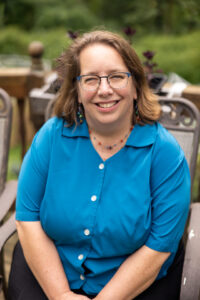By Marianne Delorey, Ph.D.

“If the only tool you have is a hammer, you tend to see every problem as a nail.” – Abraham Maslow
I have noticed that after so many years in property management, my eyes are attuned to what needs to be fixed. I can’t help myself, really. I walk into a new yoga studio, and I see water-stained ceiling tiles. I wonder where the leak was, if it is fixed, and if it resulted in mold growth. In a lot of ways, it is not a pleasant default mindset to have – I am not always looking for problems, but I can’t help noticing them. This way of viewing the world has made it difficult to visit friends’ houses without judgment or not express concern when it isn’t my place.
One of the more interesting aspects of working with seniors is watching how each person adapts to aging. We acquire and develop new skills throughout our lives. Many of these tools can be carried forward into our later years in ways that help us age well. Some of these skills can be dysfunctional, either in most settings or they become more problematic as one ages. The trick for us all is to recognize in ourselves our primary tool sets and how to develop more as we age.
There are so many great skills that help us age. Empathy helps us adapt to apartment living by being compassionate about our neighbor’s limitations. Perseverance will keep people independent longer.
Some tools are more problematic. Some people find they can get more attention from their families if they create drama or act more needy or dependent.
Most behaviors and skills fall somewhere in the middle. It is in this vast gray area that us caregivers must wade through daily and find ways to lean on their existing skills to help them help themselves. I believe strongly that everyone’s biggest weakness is often also their biggest strength. By reframing learned behavior as an asset, we can help our elders find their own strengths. I have great sympathy for folks who have only been given one hammer. But the reality is, sometimes we have to make our own tools, and tweaking existing ones is the best place to start.
Teaching skills to older adults that help them age well is not impossible and sometimes caregivers need the skills to help people learn boundaries. The very first lesson to learn is that their preferred tool is not going to work. Sometimes this means not responding to angry outbursts or manipulative tactics. While these tools may have worked with family, caregivers need to have clear boundaries about what communication is acceptable.
Meet Cara. Cara’s always been pushy. She has been able to get what she wants from her daughters by demanding and pushing back. Several years ago, she had a major medical issue while out of state. All of a sudden, she learned that being transferred back to her home area was not an option, and she was not happy. But, she also needed to spend her energy getting better and staying positive. Once she was allowed to come home, she had a new appreciation for those around her and she was able to ask, instead of demand, what she wanted.
Cara and I have butted heads many times over the years, but we also respect each other. She has her opinions, but she is also capable of listening to ours. These skills have certainly been honed since she was sick. But she remains a tough person to please. Sometimes, we get it right. Sometimes, I feel like the nail.
Marianne Delorey, Ph.D. is the Executive Director of Colony Retirement Homes. She can be reached at 508-755-0444 or mdelorey@colonyretirement.com and www.colonyretirementhomes.com.
RELATED CONTENT:
Finding meaningful work roles later in life (fiftyplusadvocate.com)
Check it Out (fiftyplusadvocate.com)
10 things I have learned about managing care for someone else (fiftyplusadvocate.com)











